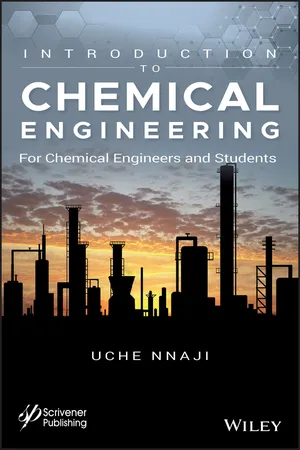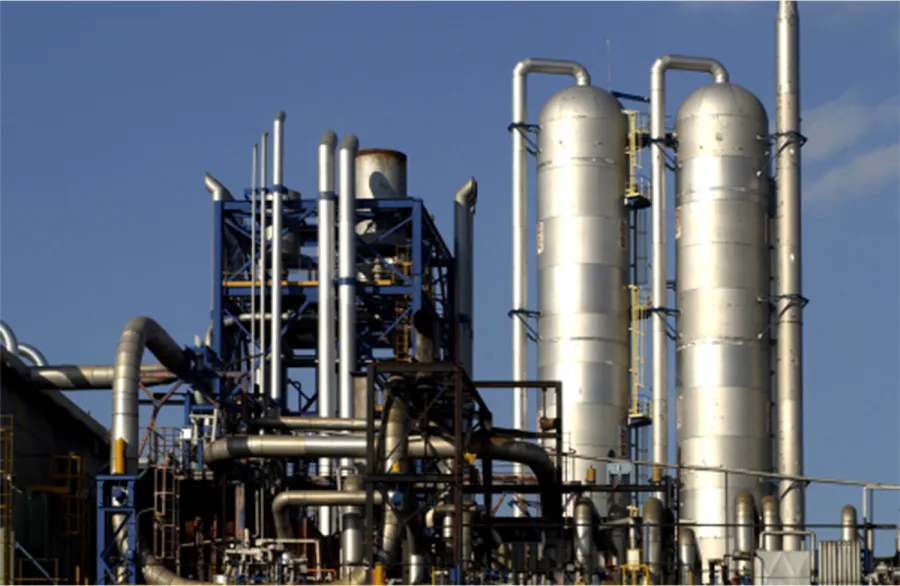
Introduction to Chemical Engineering
For Chemical Engineers and Students
Uche P. Nnaji
- English
- ePUB (disponibile sull'app)
- Disponibile su iOS e Android
Introduction to Chemical Engineering
For Chemical Engineers and Students
Uche P. Nnaji
Informazioni sul libro
The field of chemical engineering is undergoing a global "renaissance, " with new processes, equipment, and sources changing literally every day. It is a dynamic, important area of study and the basis for some of the most lucrative and integral fields of science. Introduction to Chemical Engineering offers a comprehensive overview of the concept, principles and applications of chemical engineering. It explains the distinct chemical engineering knowledge which gave rise to a general-purpose technology and broadest engineering field.
The book serves as a conduit between college education and the real-world chemical engineering practice. It answers many questions students and young engineers often ask which include: How is what I studied in the classroom being applied in the industrial setting? What steps do I need to take to become a professional chemical engineer? What are the career diversities in chemical engineering and the engineering knowledge required? How is chemical engineering design done in real-world? What are the chemical engineering computer tools and their applications? What are the prospects, present and future challenges of chemical engineering? And so on.
It also provides the information new chemical engineering hires would need to excel and cross the critical novice engineer stage of their career. It is expected that this book will enhance students understanding and performance in the field and the development of the profession worldwide. Whether a new-hire engineer or a veteran in the field, this is a must—have volume for any chemical engineer's library.
Domande frequenti
Informazioni
Chapter 1
Introduction
1.1 Definition of Chemical Engineering

| Products | Products of interest to chemical engineering include various types of commodity or specialty polymers; pharmaceuticals; a broad array of inorganic, ceramic, or composite materials; chemicals and materials for personal care products (e.g., cellular phones, optic fiber communication networks), medical products, or automobiles; diagnostic devices; drug delivery systems; and others. |
| Processes for making products | Processes of interest to chemical engineering include a large variety of industrial manufacturing systems used for the production of chemicals and materials (e.g., chemical plants, petrochemical plants, multipurpose pharmaceutical plants, microelectronics fabrication facilities, food processing plants, biomass to fuel conversion plants); ecological subsystems such as the atmosphere; the human body in its entirety and its parts; and energy devices such as batteries and fuel cells. |
| Applications of interest | Applications of interest to chemical engineering include monitoring and control of air pollution; extraction of fossil energy; life-cycle analysis, design, and production of “green” or sustainable products; diagnostic devices; drug targeting and delivery systems; combustion systems; solar energy; and many others. |
1.1.2 Chemical Engineers

- Designing a process to produce or refine a given chemical or biochemical product through all the stages from feedstock to output of the finished product.
- Designing or sizing the various pieces of equipment or process units which make up this process.
- Once a production process is operational, process/chemical engineers can be responsible for managing the production process, improving the efficiency and safety of the process; ensuring products meet the...